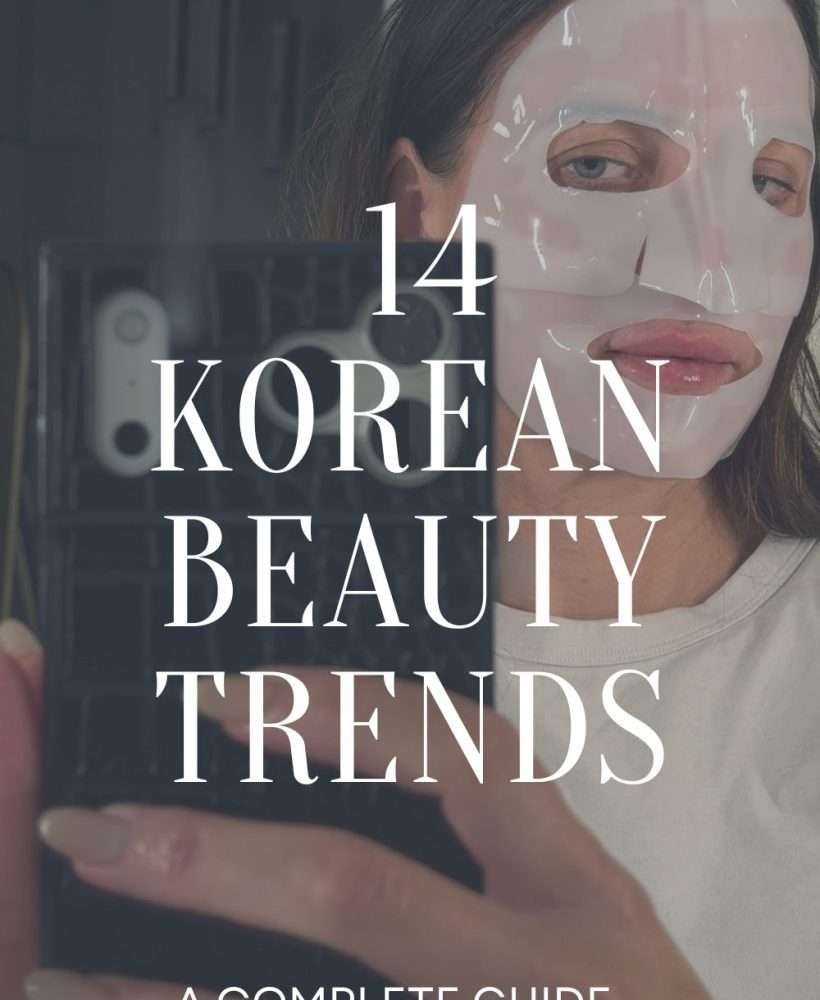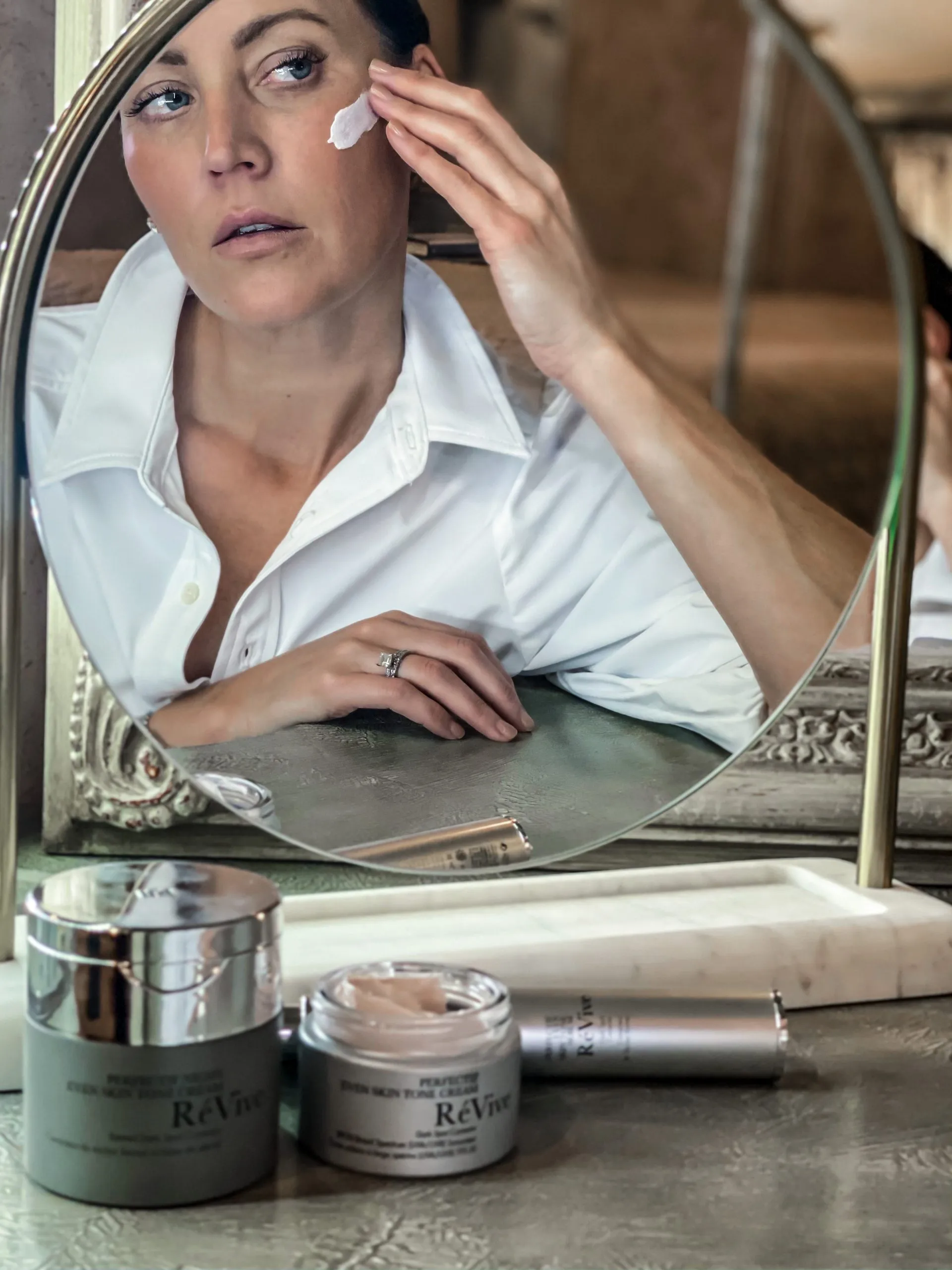Dealing with a dry scalp can be frustrating and uncomfortable. Also, not to mention, it often affects how your hair looks and feels. A dry scalp isn’t an uncommon condition and can be triggered by everything from cold weather and harsh shampoos to underlying skin conditions like seborrheic dermatitis. When left untreated, a dry scalp can lead to irritation, flaking, hair loss, and even infection. Fortunately, however, with the right hair care routine and targeted products, you can treat dry scalp safely and effectively.
So, in today’s post, I’m sharing a comprehensive guide on how to fix dry scalp. From identifying the causes to choosing the best home remedies and medicated solutions. Whether you’re dealing with a dry flaky scalp, dry itchy symptoms, or looking to restore your natural oils, this post will walk you through everything you need to know.
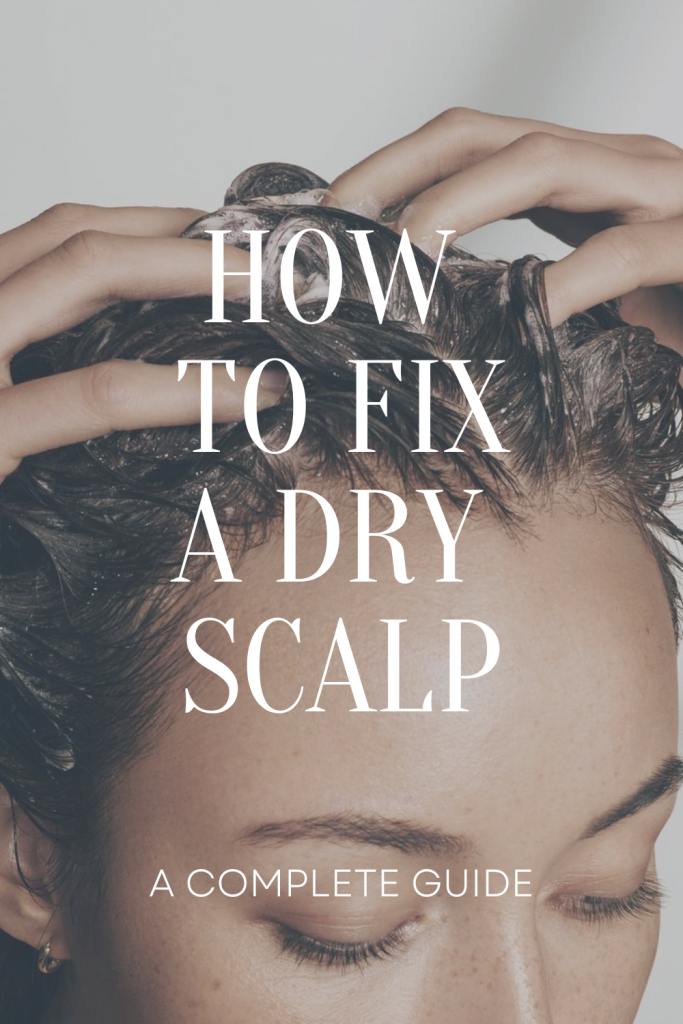
How to Fix Dry Scalp
If you’re struggling with persistent dryness, irritation, or flaking, this guide is here to help. You’ll learn what causes a dry scalp, how it’s different from dandruff, and what your scalp might be trying to tell you. I’m also sharing effective remedies—both natural and clinical—to restore your scalp’s health and help you feel confident again. Plus, I’ve included a roundup of recommended hair care products to use when trying to treat dry scalp.
And if you want to go a step further, be sure to read my full guide on how to have healthy scalp, which covers long-term hair wellness tips and maintenance strategies.
What Is Dry Scalp
Dry scalp occurs when the skin on your scalp loses too much moisture, leading to tightness, flaking, itching, or irritation. Unlike dandruff, which is often caused by excess oil and fungal overgrowth, dry scalp is primarily caused by a lack of hydration and a disrupted skin barrier. The result? A flaky appearance, discomfort, and even hair loss if untreated.
Dry scalp and dandruff are often confused, however, they have different root causes. While both conditions involve flaking, dry scalp is usually accompanied by dry skin on other parts of the body and is caused by a lack of natural oils, while dandruff is more oily and related to a yeast called Malassezia.
What Does Dry Scalp Look Like
Wondering how to tell if your scalp is dry? Here are some telltale signs:
- Small, white flakes (often seen on shoulders or scalp)
- Tightness or itching, especially after washing your hair
- Redness or mild inflammation
- Visible dry patches on the scalp
- A dull appearance or brittle hair strands
- Sensitivity or stinging when applying hair care products
Unlike dandruff flakes, which are typically large and greasy, dry scalp flakes are small, dry, and powdery.
What Causes Dry Scalp
A variety of factors can contribute to a dry scalp, including:
- Cold, dry weather
- Overwashing or using harsh shampoos
- Skin conditions like eczema or seborrheic dermatitis
- Product buildup from hair care products
- Washing your hair with hot water
- Aging (as skin becomes less efficient at retaining moisture)
- Stress, which can impact scalp health
- Nutritional deficiencies, especially of zinc, omega-3s, or vitamin B
- Fungal infections or bacterial imbalances
- Allergic reactions to hair dyes or fragrances
Understanding the cause is the first step to effectively treating dry scalp and restoring a healthy scalp barrier.
How To Get Rid Of Dry Scalp
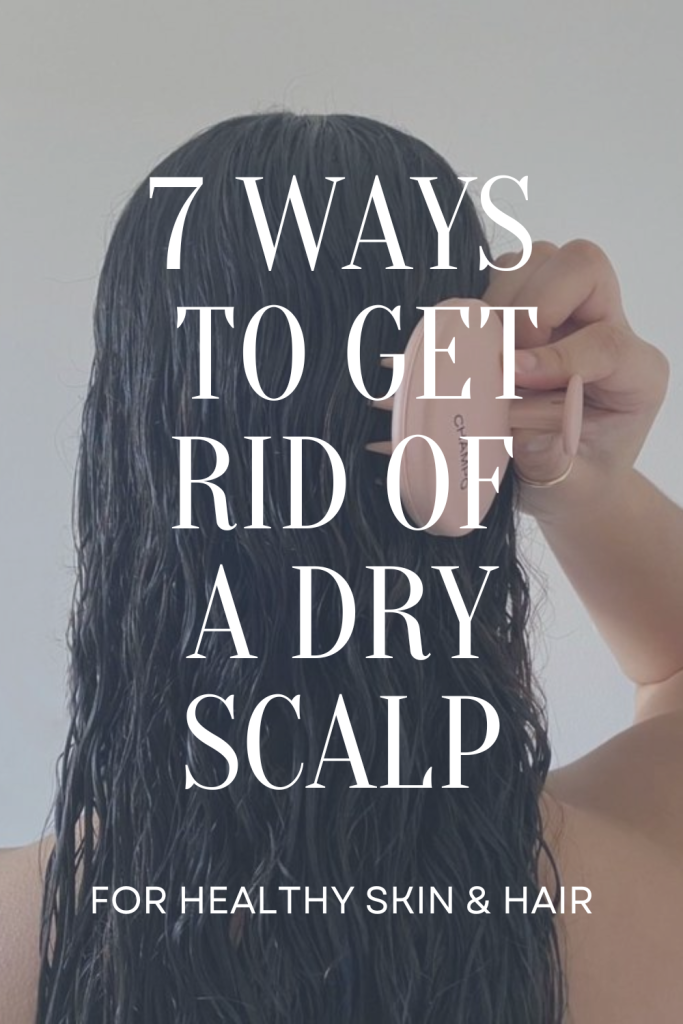
1. Switch to a Gentle, Hydrating Shampoo
Use a medicated shampoo that’s sulfate-free and enriched with ingredients like tea tree oil, salicylic acid, or zinc pyrithione. These help exfoliate dead skin cells and soothe the scalp without stripping away its natural oils.
2. Incorporate Scalp Oils or Serums
Natural oils like coconut oil or jojoba oil have anti-inflammatory properties and mimic your scalp’s own sebum. Massage into your scalp once or twice a week to help lock in moisture and loosen flakes.
3. Avoid Overwashing
Washing your hair too frequently—especially with hot water—can strip away its protective oils. Aim to wash every 2–3 days with lukewarm water and follow up with a nourishing conditioner.
4. Try Apple Cider Vinegar Rinses
Apple cider vinegar can help balance scalp pH and reduce bacteria or fungi that contribute to dryness. Dilute with water (1:3 ratio), apply after shampooing, and rinse out after a few minutes.
5. Exfoliate Gently
Use a scalp brush or a scalp scrub with gentle exfoliants like salicylic acid to remove dead skin cells and improve circulation. This can help treat dry scalp more effectively when paired with moisturizing treatments. Read more on how to exfoliate your scalp.
6. Use a Humidifier
If you live in a dry climate or run heating systems during colder months, indoor air can contribute to a dry flaky scalp. Adding a humidifier can maintain moisture levels in the air and support your scalp’s hydration.
7. Avoid Alcohol-Based Styling Products
Many styling gels and sprays contain alcohol, which can worsen dryness. So be sure to choose hair care products that are labeled as hydrating, alcohol-free, or suitable for sensitive scalps.
What To Use For Dry Scalp
1. Tea Tree Oil Shampoo
Tea tree oil has natural antifungal and anti-inflammatory properties that can help relieve itching and reduce flaking. Look for a medicated shampoo that contains this ingredient to soothe dry itchy symptoms and also support scalp health.
2. Salicylic Acid Scalp Treatment
Salicylic acid helps exfoliate dead skin cells and clear away buildup that can clog follicles and worsen dry scalp. It’s especially effective if you’re dealing with seborrheic dermatitis or persistent flakes.
3. Coconut Oil
A classic home remedy, coconut oil nourishes dry skin and prevents moisture loss. Apply warm coconut oil directly to the scalp, leave it on for 20–30 minutes, and then rinse with a mild shampoo. Read my guide on how often you should oil your scalp.
4. Apple Cider Vinegar Scalp Rinse
ACV has antimicrobial and pH-balancing effects, which can help treat dry scalp naturally. It’s particularly helpful if your dryness is caused by fungal imbalances or product buildup.
5. Hydrating Scalp Serums
Look for serums enriched with hyaluronic acid, aloe vera, or peptides. These replenish moisture levels, calm irritation, and can be used daily as part of your hair care routine.
6. Medicated Shampoo
For more severe cases, opt for a medicated shampoo with ingredients like coal tar, ketoconazole, or selenium sulfide. These are effective for addressing chronic dry scalp and dandruff, especially when related to skin conditions like psoriasis or seborrheic dermatitis.
If you’re unsure which product or method is best for your scalp type, it may help to consult a dermatologist. Especially if you’re experiencing hair loss or signs of infection. Also, a professional can help tailor a solution and may recommend prescription treatments if over-the-counter remedies aren’t working.
Final Thoughts
Fixing a dry scalp takes a bit of consistency, but with the right approach, it’s totally manageable. By understanding the root cause, making thoughtful changes to your hair care routine, and incorporating effective products. For example, from tea tree oil to apple cider vinegar, you can begin to treat dry scalp naturally and safely.
Remember, your scalp is overall an extension of your skin. Just like you care for your face with hydration and exfoliation, your scalp needs the same attention. A healthy scalp means healthier, shinier hair. So don’t skip it in your beauty routine!
Also, for more on long-term care, don’t forget to check out my post on how to have healthy scalp.
Shop My Favorite Scalp Care Products
Don’t forget to pin to save for later!
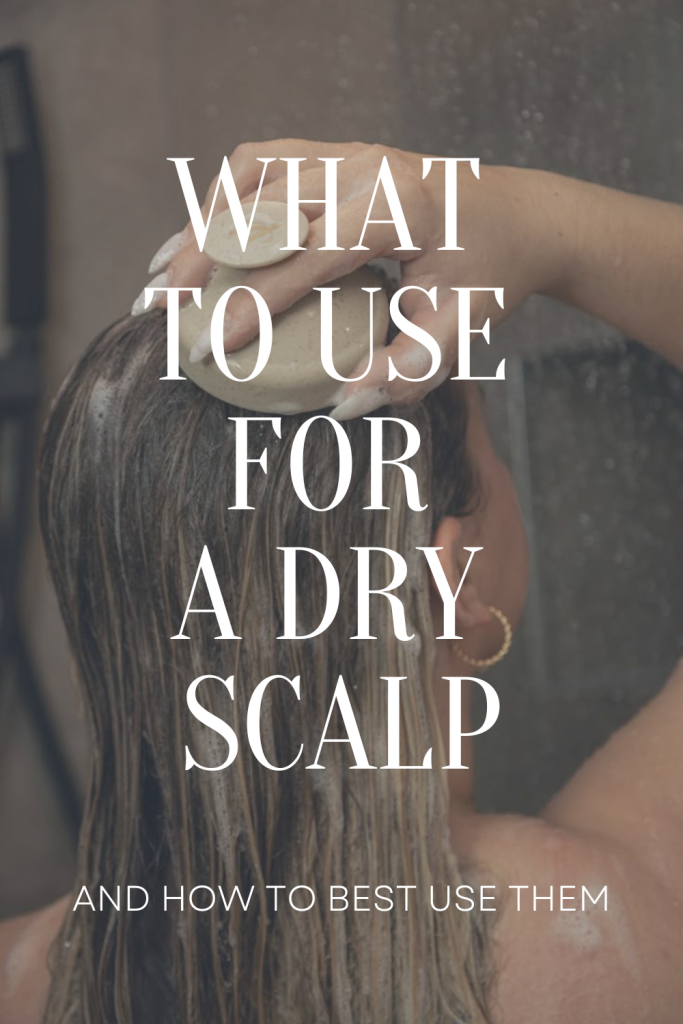
Be sure to check out my most recent posts for more style inspiration!
- 55 + March Nail Ideas
- 6 Home Decor Color Trends
- 14 Korean Beauty Trends
- Transitional Winter to Spring Outfits
- WHAT TO WEAR TO A CASUAL DINNER
Please feel free to email me at thegraydetails@gmail.com if you have any questions! I’m always happy to help with styling or picking out a specific outfit for an event! Have an amazing day!!
Also, check out my instagram shop HERE to shop all my instagram looks, style guides, gift guides and fashion tips.
You can also download the free LIKETOKNOW.IT app and follow me HERE.
STAY IN THE KNOW: Don’t forget to sign up for my exclusive Newsletter for STYLE TIPS, SALE ALERTS, AND MUCH MORE!
As always, thank you so much for stopping by today, I truly appreciate all of you! xx, Amanda
FOLLOW ALONG
Instagram | Pinterest | Facebook | Shop Instagram | You Tube




